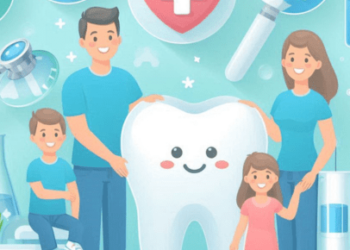
Living sustainably often gets portrayed as an expensive lifestyle only achievable for the wealthy. Nevertheless, there are tons of simple, budget-friendly swaps you can make in daily life to reduce your environmental impact. With a little creativity, anyone can adopt more eco-conscious habits without breaking the bank.
Use Cloth Bags for Shopping and Storage
The problem of widespread waste is significantly worsened by single-use plastic bags. A simple way to begin sustainable living is to consistently use reusable cloth bags for shopping. Maintain a stash by the door to grab on the way out. Grocery and retail stores stock inexpensive reusable bags by the checkout if you ever leave yours behind.
For storage, reuse spent grain or flour sacks, bread bags and paper bulk good bags. Stitch a drawstring into a mesh onion sack for produce. Wrap leftovers in linen napkins, then secured in jars or containers using rubber bands in place of plastic wrap. Reusable beeswax wrap is also a pricier but sturdier plastic wrap alternative that lasts for years.
Ditch Paper Towels
Paper towel addiction helps fuel deforestation while sending piles of waste to landfills. Yet durable replacements like dishcloths and rag towels cost mere dollars versus expensive bundles of disposable paper towels. Maintain separate sets for kitchen, cleaning and garage uses.
Bidet Attachments
Toilet tissue takes immense resources to produce as a disposable commodity; first trees or bamboo for raw paper pulp, then plastic packaging to encase rolls. Installing bidet attachments to existing toilets affords big savings by letting you drastically cut back on TP usage.
Embrace Bar Forms of Gels and Liquids
Many grooming products unnecessarily get packaged in disposable plastic bottles; shampoo, soap, deodorant, sunscreens, and more exist in solid bar forms requiring no plastic waste. Bar forms last as long or longer than bottled liquids.
Or get crafty reusing containers: dilute specialty hair and skin products like conditioner and facial serums in bulk volumes into reusable glass dispensers. The experts at Ecofam say that compostable toothbrushes are an excellent plastic-free swap. As does zero waste oral care floss made of silk or biodegradable wood fiber instead of nylon.
Reduce Food Waste in Your Meals
Over 40% of food produced in America winds up in landfills, wasting resources invested along each step of production, transport and more. Yet cutting back on your own household’s food waste is tremendously easy, saving money while preventing organic waste from year-round crop harvests from creating potent greenhouse gasses as it decays.
Start by planning weekly meals using on-hand ingredients so extras purchased don’t spoil. Extend freshness of produce by learning ideal storage methods for different vegetables and fruit. Repurpose abundant seasonal bumper crops into batches of baked goods, soups, sauces and preserves for enjoying long term rather than tossing excess.
Grow Your Own Food
Not everyone can grow fields of grain or raise chickens in their backyard, but even devoted city slickers can nurture petite indoor or balcony container gardens to harvest herbs, greens, tomatoes and peppers on a budget.
Windowsill an herb garden year-round, grown from seed or store-bought starts. Used coffee grounds mixed into soil makes an excellent fertilizer. Expand outdoor beds, planters and pots once the weather allows – focus on prolific edibles suited for small spaces like kale, carrots, radishes, beans, shallots.
Conclusion
Sustainable living on a budget is absolutely doable through small daily changes in habits over time. Each swap eliminates more single-use plastics from entering waste streams while saving money. Try new solutions suggested here weekly to develop greener lifestyle habits that soon become second nature.










